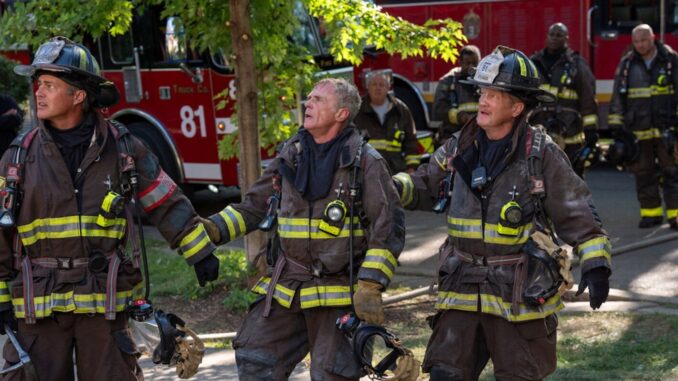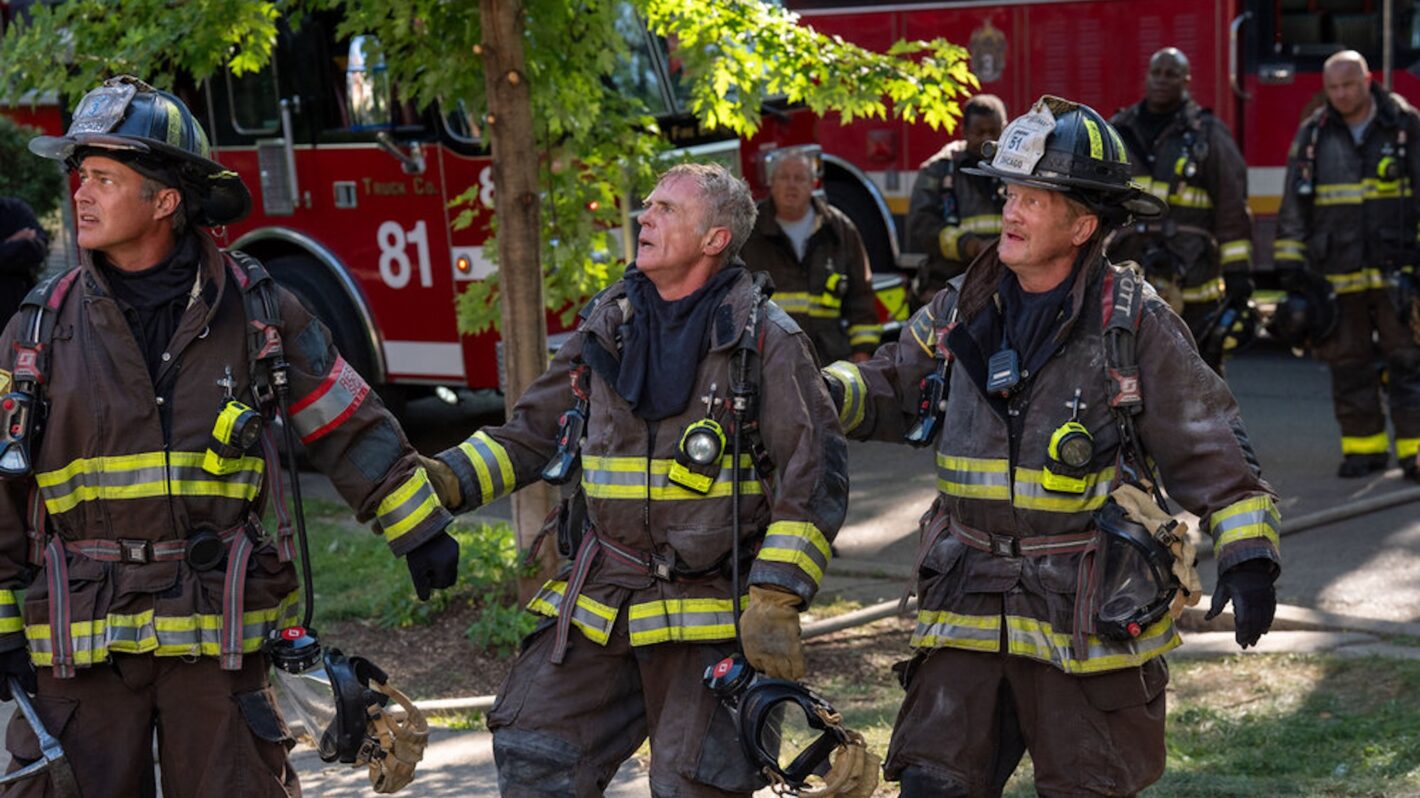
The Ashes of Herrmann: David Eigenberg on Emotional Isolation After the Fire
The sirens wail, a symphony of chaos against the backdrop of burning timber and billowing smoke. We, the audience, are used to this. We expect it, even crave it, from “Chicago Fire.” But it’s not the explosions or the dramatic rescues that truly grip us; it’s the human cost, the quiet struggles fought within the hearts of the brave. And in the wake of the devastating fire that gutted Molly’s and so much more, no character embodies this quiet struggle more poignantly than Christopher Herrmann, brought to life by the nuanced performance of David Eigenberg. As Eigenberg himself articulates, Herrmann’s experience isn’t just about the loss of a building; it’s about the crippling emotional isolation that festers in the aftermath.
Herrmann, the everyman firefighter, the heart and soul of Firehouse 51, is a man defined by connection. He’s the father figure, the jovial bartender, the reliable friend who always has a shoulder to lean on and a beer ready to pour. Molly’s, his bar, is more than just a business; it’s an extension of his personality, a haven where camaraderie and laughter are always on tap. When the fire consumes Molly’s, it doesn’t just take bricks and mortar; it rips away a vital part of his identity, leaving him adrift in a sea of guilt and grief.
Eigenberg’s portrayal masterfully depicts this unraveling. We see it in the haunted look in Herrmann’s eyes, the forced smiles that don’t quite reach them. We hear it in the choked voice, the clipped responses, the deliberate avoidance of any conversation that might dredge up the painful reality. He throws himself into the rebuilding effort, a flurry of hammers and nails, but it’s a desperate attempt to fill the void, to silence the voices of self-doubt and the gnawing fear that he failed, that he let his family down.
This, according to Eigenberg, is the crux of Herrmann’s isolation. He’s a man who prides himself on being the rock, the dependable force for others. He’s spent years being the listener, the problem-solver, the shoulder to cry on. But now, when he desperately needs to be on the receiving end of that support, he finds himself unable to ask for it. This isn’t borne out of arrogance; it stems from a deep-seated fear of appearing weak, of burdening his loved ones with his own pain. He fears that if he breaks down, the whole structure he’s built, the image of strength he projects, will crumble along with him.
The tragic irony is that his attempts to shield his family and friends only push them further away. They see his pain, they sense his withdrawal, but they’re unsure how to reach him. This creates a palpable tension, a distance that further fuels Herrmann’s isolation. He becomes trapped in a self-perpetuating cycle of suffering, unable to connect with the very people who could offer him solace.
Eigenberg’s understanding of this dynamic is crucial to the authenticity of his performance. He doesn’t portray Herrmann as a melodramatic victim, but as a flawed and relatable human being grappling with immense loss and the overwhelming pressure to remain strong. He emphasizes the subtle nuances – the way Herrmann clenches his jaw, the way he avoids eye contact, the way he subtly withdraws from physical affection – all of which speak volumes about the internal turmoil he’s experiencing.
Ultimately, the aftermath of the fire isn’t just about the destruction of Molly’s; it’s about the destruction of a part of Herrmann himself. It’s about the shattering of his confidence, the erosion of his sense of purpose, and the crippling emotional isolation that follows. Through Eigenberg’s insightful performance, we witness the raw vulnerability of a man who is usually so assured, reminding us that even the strongest among us are susceptible to the devastating effects of trauma. His portrayal of Herrmann’s struggle serves as a powerful reminder of the importance of connection, of vulnerability, and of allowing ourselves to be supported, even when we feel like we have to shoulder the weight of the world. The fire may have consumed Molly’s, but it’s the slow burn of Herrmann’s internal struggle that truly leaves a lasting impression. It’s in the ashes of that fire, that we see the true depth and complexity of this beloved character, brought to life with such heart and conviction by David Eigenberg.

